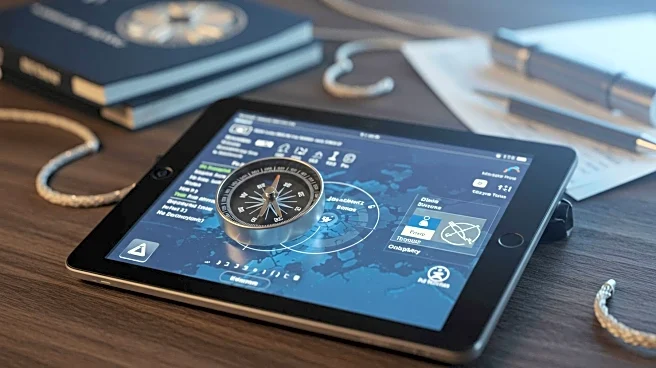What is the story about?
What's Happening?
The maritime industry is facing challenges in training due to the modern mariner's shrinking attention spans, influenced by social media platforms like TikTok. Traditional training methods, such as lengthy lectures and dense PDFs, are proving ineffective against the fast-paced, engaging content mariners are accustomed to. To address this, maritime training is shifting towards microlearning, which involves breaking down information into small, digestible chunks. This approach includes using short videos, flashcards, and interactive elements to enhance retention and engagement. The focus is on creating training that is visually appealing and emotionally engaging, leveraging the mariners' familiarity with short-form content and intuitive apps.
Why It's Important?
The shift towards microlearning in maritime training is crucial as it aligns with the learning preferences of modern mariners, ensuring that essential safety and operational knowledge is effectively communicated and retained. This adaptation is significant for the industry as it seeks to maintain high safety standards and operational efficiency amidst changing digital habits. By embracing microlearning, the maritime sector can improve training outcomes, reduce mental fatigue, and foster safer behaviors at sea. This approach also highlights the importance of innovation in training methodologies to keep pace with technological advancements and changing workforce dynamics.
What's Next?
The maritime industry is likely to continue exploring and implementing microlearning techniques, with a focus on integrating technology-driven solutions that cater to the digital habits of mariners. This may involve developing more interactive and app-based training modules, enhancing the use of AI-driven platforms for personalized learning experiences, and increasing the frequency of short, impactful training sessions. Stakeholders, including training providers and maritime companies, may collaborate to refine these methods and ensure they meet industry standards while effectively engaging the workforce.
Beyond the Headlines
The adoption of microlearning in maritime training could lead to broader implications, such as influencing training practices in other industries facing similar challenges with attention spans. It may also drive innovation in educational technology, prompting the development of new tools and platforms that cater to diverse learning needs. Additionally, this shift underscores the importance of understanding and adapting to cultural and technological changes in workforce training, potentially leading to more inclusive and effective educational strategies across sectors.
















